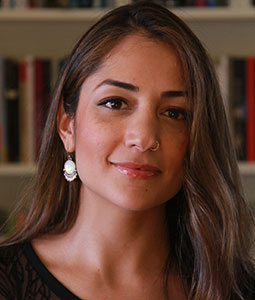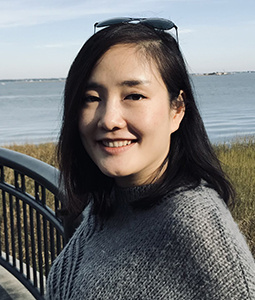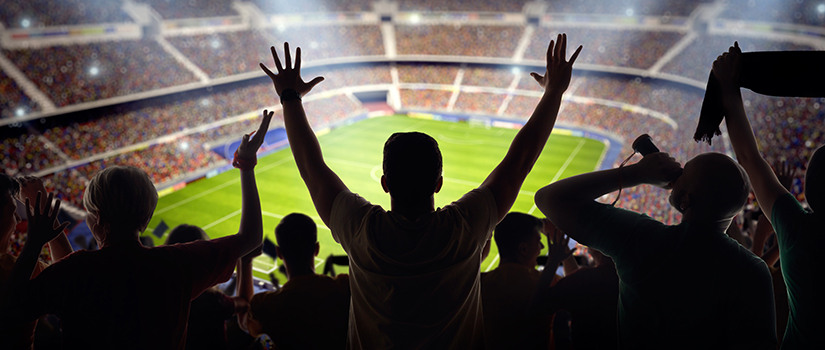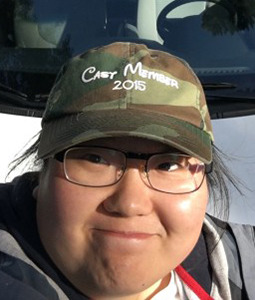Mission Statement
We seek to critically interrogate the social, economic, and political structure as well as meanings of the ever-evolving sport media industry. Our goal is to advance knowledge in this area by fostering continued collaborative teaching and research efforts across the Department of Sport and Entertainment Management and the School of Journalism and Mass Communications.
Faculty Lab Members
-

Tarlan Chahardovali, Ph.D.
Assistant Professor
Department of Sport and Entertainment Management
-

Kevin Hull, Ph.D.
Associate Professor and Sports Media Lead
School of Journalism and Mass Communications
-

Cheng (Grace) Yan, Ph.D.
Associate Professor
Department of Sport and Entertainment Management
Ph.D. Student Lab Members
Current Research Projects
- Constructing gender in sport film: An analysis of "A League of Their Own" 2022 series – Led by Ph.D. student Yutong Xu
- The cultural politics of Lia Thomas on Twitter: A critical discourse analysis – Led by Ph.D. student Grace Davie
Research Publication Highlights
| Year | Author(s) | Title, Publication or Publisher, DOI or Link | Keywords (hidden column) |
|---|---|---|---|
| 2024 (estimated) | Hull, K. | Sports, media, and society, Human Kinetics | |
| 2023 | Chahardovali, T., & McLeod, C. M. | Manufacturing dreams and investing in future generations: Women athletes’ inspirational labor in the marketing and promotion of their sport, Sociology of Sport Journal, 10.1123/ssj.2022-0092 | |
| 2023 | Chahardovali, T. | The precarious labour of women footballers: A shadow in the light of the 2023 FIFA Women’s World Cup, In A. Beissel, V. Postlethwaite, A. Grainger & J. Brice (Eds.) The 2023 FIFA Women's World Cup: Politics, Representation, and Management, 10.4324/9781003379201-5 | |
| 2022 | Hull, K. | Sports broadcasting, Human Kinetics, View book | |
| 2022 | Johnson, R., Romney, M., Hull, K., & Pegoraro, A. | Shared space: How North American Olympic broadcasters framed gender on Instagram, Communication & Sport, 10.1177/2167479520932896 | |
| 2022 | Newman, J. I., Xue, H., Watanabe, N. M., Yan, G., & McLeod, C. | Going digital, gone viral: An analysis of investment in the esports narrative economy, Communication & Sport, 10.1177/2167479520961036 | |
| 2022 | Watanabe, N. M., Xue, H., Newman, J. I., & Yan, G. | The attention economy and esports: An econometric analysis of Twitch viewership, Journal of Sport Management, 10.1123/jsm.2020-0383 | |
| 2022 | Yan, G., Xue, H., & Seifried, C. | Representations of Wrigley Field redevelopment(s) in the Chicago Tribune: Neoliberal discourse and urban politics, Sociology of Sport Journal, 10.1123/ssj.2019-0100 | |
| 2021 | Hull, K., & Romney, M. | Welcome to the big leagues: Exploring rookie sports broadcasters’ adjustment to new careers, Journalism and Mass Communication Educator, 10.1177/1077695820933888 | |
| 2021 | Hull, K., Billings, A. C., & Schwartz, L. | The “Mighty Kacy” effect? American Ninja Warrior and the elevation of women athletes, Journal of Sports Media, 10.1353/jsm.2021.0012 | |
| 2021 | Yan, G., Pegoraro, A., & Watanabe, N.M. | Examining IRA bots in the NFL anthem protest: Political agendas and practices of digital gatekeeping, Communication and Sport, 10.1177/2167479519849114 | |
| 2020 | Hull, K., & Romney, M. | “It has changed completely”: How local sports broadcasters adapted to no sports, International Journal of Sport Communication, 10.1123/ijsc.2020-0235 | |
| 2020 | Harrison, G., Pegoraro, A., Romney, M., & Hull, K. | The “angry Black woman”: How race, gender, and American politics influenced user discourse surrounding the Jemele Hill controversy, Howard Journal of Communications, 10.1080/10646175.2019.1608483 | |
| 2019 | Hull, K., Romney, M., Pegoraro, A., & Harrison, G. | “It’s funny to hear a female talk about routes”: Online reaction to Cam Newton’s comments about a female reporter, Journal of Social Media in Society, View article | |
| 2019 | Yan, G., Watanabe, N. M., Shapiro, S., Naraine, M., & Hull, K. | Unfolding the Twitter scene of the 2017 UEFA Champions League Final: Social media networks and power dynamics, European Sport Management Quarterly, 10.1080/16184742.2018.1517272 | |
| 2018 | McLeod, C. M., Holden, J. T., Hawzen, M. G., & Chahardovali, T. | Do influxes of atypical labor make sport event workers prone to exploitation?, Sport Management Review, 10.1016/j.smr.2018.07.003 | |
| 2018 | Yan, G., Pegararo, A., & Watanabe, N. M. | Student-athletes’ organization of activism at the University of Missouri: Resource mobilization on Twitter, Journal of Sport Management, 10.1123/jsm.2017-0031 |
Courses Offerings Related to Sport Media and Cultural Studies
The Department of Sport and Entertainment Management and School of Journalism and Mass Communications at the University of South Carolina offer numerous courses with subject matter focused on sport media and culture. Below is a list of current classes and their descriptions for students with an interest in concentrating their studies in this emerging area.
Exploring different jobs in sports media with a focus on careers within the fields covered by the degree programs within the School of Journalism and Mass Communications.
Analysis of prominent sports activism cases and exploration of issues of access, economics, race, religion, gender, culture and nationality, through the lens of media coverage.
Exploration of the intersection of American media, sports and race.
Effective social media use in the world of the sports media. Topics relating to advertising, journalism, public relations, visual communications, and mass communications will be discussed. Provides contextual background on various social media and uses exercises to develop best practices.
The media’s role in how the public views the SEC football games, schools, and athletes is a key component to the mystique of the league. This course examines the media’s role in the past, present, and future of the SEC.
How the sports media culture helps create and maintain, as well as challenge, inequalities based on gender and sexual identity. Students will learn how gender and sexuality are constructed through sports media and how they intersect with race, class, able-bodiedness and nationality.
History of sports media and an analysis of current relationships between the sports industry, athletes, media, social media and the audience.
The emerging field of sports team media. Content will expose students to many topic areas that comprise team media including sports advertising, journalism, public relations, visual communications, and content creation.
The American sport and entertainment enterprise: background, influences, and trends; collegiate and professional sport organizations; ownership and unionization; media portrayals.
Investigation of sport and entertainment as critical facets of American society.
This class invites students to consider a variety of classic and contemporary, international and domestic sports films featuring heroes and villains from baseball, basketball, boxing, football, soccer and other sports stages. Students will develop a rhetorical analysis of socially significant sport films after exposure to numerous critical perspectives.
This course examines the development and political economy of different categories of sport media — newspapers, sport radios and social media. Students apply basic terminology and fundamental theories/principles to analyze and critique media representations of sport. Students also explore the dynamics of sport social media in the digital age and how it enables a networked, user-participated attention economy with social, economic and political consequences in shaping the knowledge of sport.
When sport is discussed, how we talk about them, and the possible viewpoints are all given beforehand by deeply entrenched social institutions. The objective of this course is to identify how these institutions are constructed, and how sport is an activity that embodies social relations.


